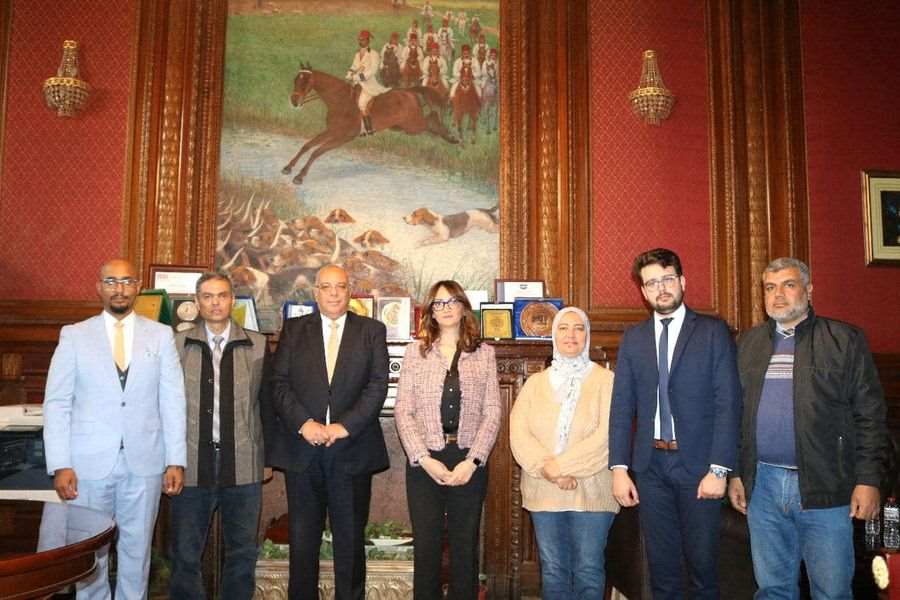In order to adapt with the climate change crisis and its impact on agriculture in Siwa Oasis, a group of OSS organization “Sahara and Sahel Observatory” meets with Dr. Hosam Shawky , President of Desert Research Center, to discuss a proposed project, in cooperation between the two sides. The project is entitled “Adaptation to climate change to improve livelihoods in Siwa Oasis,”
The project aims to introduce varieties that can cope with climate change, and train farmers on agricultural practices that are compatible with the nature of the oasis and climate change. The project also includes non-agricultural fields, as it addresses the field of tourism of all kinds (environmental, therapeutic, safari tourism). It also refers to the role of women in preserving Traditional craft industries of the oasis.
A meeting was held to discuss the project and present ideas that fit the requirements people of the oasis from different age, social and economic groups, and to discuss problems that facing agriculture in the oasis, such as farms affected by the rise in ground water levels and the high salinity of groundwater wells.
It must be mentioned that Sahara and Sahel Observatory (OSS) is an international organization with an African vocation and based in Tunis. The OSS initiates and facilitates partnerships on common challenges related to the management of shared water resources, the implementation of international agreements on desertification, biodiversity and climate change in Africa.
OSS mission to Siwa Oasis is to continue the procedures in order to start the implementation of the project . OSS support its African member countries in the sustainable management of their natural resources in a particularly disadvantageous climate change context. Its action extends mainly over the arid, semi-arid and dry sub-humid areas of Africa.
The OSS action covers a wide range of interventions relating to environment monitoring and surveillance in support of the countries’ efforts in the fight against land degradation and desertification, the sustainable management of water, the resilience of populations and the preservation of the biological heritage.


